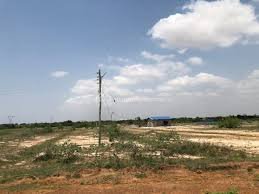By: Ahmed Asiedu – NDC Executive Member of Greater Manchester and A Concerned Land Advocate
In Ghana, the acquisition and ownership of land has long been a labyrinthine affair—a shadowed maze of paperwork, chieftaincy disputes, and entrenched lawlessness. Despite the existence of constitutional guarantees and periodic land reforms, land tenure remains one of the most contentious, insecure, and dangerous sectors in the country. What should be a straightforward legal process is too often a high-stakes gamble fraught with risk, violence, and betrayal—even when you’ve done everything by the book.


A Firsthand Account from the Central Region
A recent incident in the Central Region starkly illustrates this dysfunction. A law-abiding individual lawfully purchased land, completed the necessary due diligence, secured the land title in their name, and obtained all relevant legal documentation. Yet, after years of threats and obstructions, they found themselves in court—defending what was already rightfully theirs. The court affirmed their ownership and granted a demolition order against illegal encroachments. But enforcing this legal order proved impossible.
Why? The menace of land guards—armed vigilantes hired to terrorize, extort, and dominate land disputes—had taken control. The state, represented by its police force, stood powerless or worse, complicit. This is the bizarre and dangerous reality in Ghana’s land sector today: one can win in court but still lose on the ground.
The Systemic and Historical Roots of the Problem
Ghana’s land ownership challenges are not recent. They are the tragic offspring of overlapping systems: customary land tenure, poor documentation, ineffective dispute resolution, and a weak enforcement regime. Over 80% of lands in Ghana are under customary ownership, managed by stools, skins, families, or clans. While this traditional system is deeply rooted and culturally significant, its lack of standardized procedures has enabled multiple sales of the same parcel of land and conflicting claims.
However, an equally dangerous contributor to the crisis is the chronic inefficiency within the Land Registration Department. Individuals who acquire land legally and submit all required documentation for registration often find themselves trapped in bureaucratic delays that stretch for months or even years. This delay not only frustrates rightful owners but creates a legal vacuum easily exploited by fraudsters and land guards. While legal documents lie unattended at the Lands Commission, others move in and build—illegally, but often with political or criminal backing.
Even lands acquired through the state or registered with the Lands Commission are not immune. The opacity of land records, corruption within land institutions, and constant political interference have eroded public trust and rendered legitimate ownership meaningless in many parts of the country.

The Criminal Enterprise of Land Guards and State Complicity
The menace of land guards has evolved into a full-blown criminal enterprise. Originally informal enforcers for landowners, many now operate with a level of impunity that rivals organised crime syndicates. They intimidate, assault, extort, and in some cases, kill. Their influence is so pervasive that legal landowners often live in fear despite holding valid documentation and court judgments in their favour.
What’s worse—and deeply troubling—is that some police officers are in active collusion with these criminal gangs. There are documented cases where law enforcement has ignored court orders, refused to intervene, or worse, provided protection for illegal developers and land guards. Officers who should uphold the law instead broker backdoor deals and tip off trespassers before enforcements occur.
And the rot doesn’t end with the police. In various districts, Metropolitan, Municipal, and District Chief Executives (MMDCEs)—those tasked with representing government authority at the local level—have also been implicated. Instead of supporting the rule of law, some MMDCEs openly take sides, use their influence to delay enforcement actions, and in some cases, actively frustrate legal landowners for personal or political gain. This institutional betrayal adds a new layer of hopelessness to an already broken system.
Economic and Social Implications
This crisis has devastating consequences for development. Investors, both foreign and local, are growing wary of real estate and agricultural ventures in Ghana. Legitimate landowners are losing their life savings, homes, and peace of mind. The social fabric is fraying as land disputes lead to violence, displacement, and sometimes death. Meanwhile, the government loses millions in potential tax revenue due to illegal transactions and unregulated land use.
What Must Be Done: A Call to Action
The next administration—particularly if led by John Dramani Mahama and the National Democratic Congress (NDC)—must act swiftly and decisively. This is not just an issue of law; it is a national emergency that demands moral clarity, political will, and institutional overhaul.
Key Recommendations:
- Strengthen and Modernise the Lands Commission
Digitise all land records with a centralised and secure system. Eliminate paper-based bottlenecks. Enforce registration timelines and improve transparency across all regional offices. - Outlaw and Dismantle Land Guard Networks
Parliament must pass a specific anti-land guard law categorising their operations as organised crime. There should be heavy prison sentences, asset seizures, and public naming of known land guard sponsors and protectors. - Establish a Land Dispute Resolution Court
Create a specialised court system staffed by land law experts to expedite disputes and reduce litigation timelines from years to months. - Enforce Court Judgments Without Excuse
Create a joint task force empowered to enforce land-related court orders without delay. Any police officer or public official who obstructs enforcement must be held legally accountable. - Investigate and Prosecute Corrupt Police and MMDCEs
The Ghana Police Service and Office of the Special Prosecutor must investigate officers and local government officials accused of colluding with land guards. No one should be above the law. - Public Awareness and Land Law Education
Launch a national campaign to educate citizens on their rights, how to perform due diligence, and how to report land-related crimes without fear of reprisal.
Conclusion: Ghana Must Choose Law Over Chaos
Land is not just real estate in Ghana—it is ancestral, spiritual, and economic power. When land justice fails, society unravels.
If Ghana is to become a beacon of stability and prosperity in West Africa, it must start by securing the very soil on which its people stand. That will take courage, integrity, and leadership with the backbone to confront entrenched interests.
President Mahama, if given the mantle again, must not tiptoe around this crisis. He must attack it head-on, with reforms that reach from the village chief’s stool to the corridors of the Lands Commission.
Let us not allow machetes to speak louder than court orders. Let us not let bribes override birthrights. Let Ghana rise from this lawless land culture and build a future where owning land means owning peace—not problems.





























